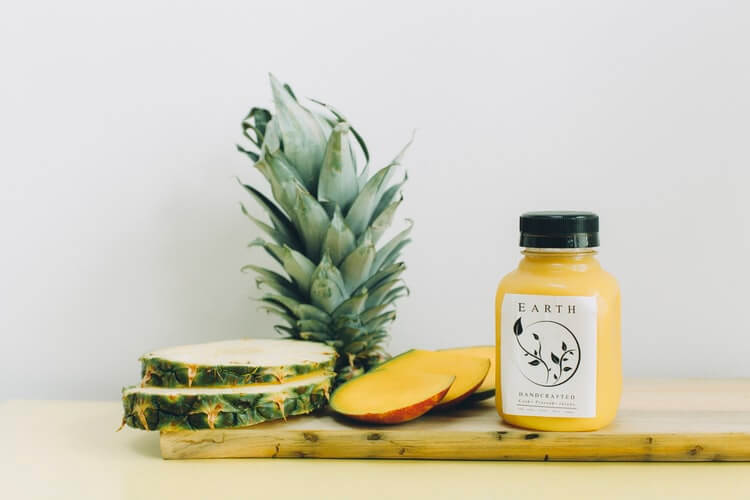
Cardiovascular diseases (CVDs) are the number 1 cause of death globally, taking an estimated 17.9 million lives each year. CVDs are a group of disorders of the heart and blood vessels and include coronary heart disease, cerebrovascular disease, rheumatic heart disease and other conditions. As February is the month of Heart Health, we at West Bay Pharmacy encourage everyone to be mindful of their health and start taking better care of their heart!
Here are some easy to follow tips to increase your heart health:
Give up smoking
Sometimes the hardest thing and the right thing are the same. If you’re a smoker, quit. It’s the single best thing you can do for your heart health.
Smoking is one of the main causes of coronary heart disease. You will feel the effects within the first 24 hours. Statistics say just a year after giving up, your risk of a heart attack falls to about half that of a smoker.
If you’d like more information on how to quit smoking, here is a helpful article.
Get active
Getting – and staying – active can reduce your risk of developing heart disease. It can also be a great mood booster and stress reliever.
Do 150 minutes of moderate-high intensity aerobic activity every week. One way to achieve this target is by doing 30 minutes of activity on 5 days a week. We have great gyms and fitness classes offered on island. If you want something more cost-efficient and outdoors, not to worry. We live on a beautiful, tropical island with access to the beach being just a hop, skip and a jump away. Consider doing beach walks, beach yoga, or long swims as part of your weekly activity.

Manage your weight
Being overweight can increase your risk of heart disease. Stick to a healthy, balanced diet low in fat and sugar, with plenty of fruit and vegetables, combined with regular physical activity. Use the BMI calculator as a starting base for your fitness goals. From there, you can plan your meals and activity accordingly to achieve your goals and stay heart healthy!
Eat more fibre
Eat plenty of fibre to help lower your risk of heart disease – aim for at least 30g a day.
Eat fibre from a variety of sources, such as wholemeal bread, bran, oats and wholegrain cereals, potatoes with their skins on, and plenty of fruit and veg.
Cut down on saturated fat
Eating too many foods that are high in saturated fat can raise the level of cholesterol in your blood. This increases your risk of heart disease. Here are examples of foods that are high in saturated fats:
- fatty cuts of beef, pork, and lamb
- dark chicken meat and poultry skin
- high-fat dairy foods (whole milk, butter, cheese, sour cream, ice cream)
Choose leaner cuts of meat and lower-fat dairy products like 1% fat milk over full-fat (or whole) milk.
Get your 5 A Day
Eat at least 5 portions of a variety of fruit and vegetables a day. They’re a good source of fibre, vitamins and minerals.
There are lots of tasty ways to get your 5 A Day, like adding chopped fruit to cereal or including vegetables in your pasta sauces and curries. Living on a beautiful island we are access to a large variety of exotic fruits and vegetables such as yellow squash, avocados, callaloo, cassava, calabash, spring onions, pineapples, tomatoes, peas, chili, peppers a great range of citrus fruits such as oranges, lemons, limes, grapefruits, bananas and plantains.

Cut down on salt
To maintain healthy blood pressure, avoid using salt at the table and try adding less to your cooking.
It may seem difficult or even impossible to cut down on your salt intake as salt makes everything delicious, but that’s all part of the conditioning. Once you get used to food without salt, you’ll crave it way less.
Watch out for high salt levels in ready-made foods. Most of the salt we eat is already in the foods we buy.
Check the food labels – a food is high in salt if it has more than 1.5g salt (or 0.6g sodium) per 100g.
Adults should eat less than 6g of salt a day in total – that’s about 1 teaspoon.
Eat fish
Eat fish at least twice a week, including a portion of oily fish. Fish such as fresh snapper, mahi mahi and wahoo are a source of omega-3 fats, which may help protect against heart disease. We have a great

Drink less alcohol
We all know alcohol is good to avoid for many health reasons. Regularly drinking more than the NHS recommends can have a noticeable impact on your waistline. Try to keep to the recommended daily alcohol limits to reduce the risk of serious problems with your health, including risks to your heart health.
Read the food label
When shopping, it’s a good idea to look at the label on food and drink packaging to see how many calories and how much fat, salt and sugar the product contains.
Understanding what’s in food and how it fits in with the rest of your diet will help you make healthier choices.
Happy February and Happy Heart Health Month Cayman! Wishing you a healthy month and we hope this blog post sparked some inspiration in you to take care of your heart.
Until next time!


